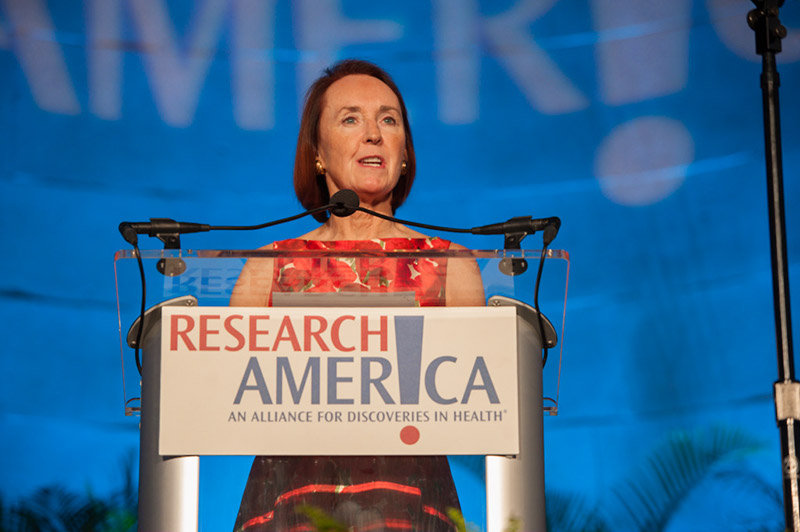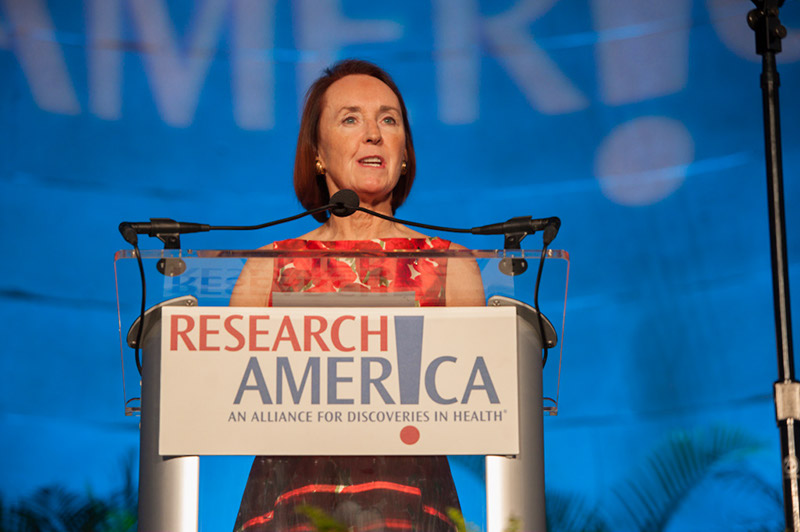Trust in science


Dear Research Advocate,
Later today, I will participate on a panel at Aspen Ideas: Health to explore the implications of an ambitious new survey commissioned by the Wellcome Trust. The report, which was released yesterday in Washington, explores public attitudes on trust in science, gathered in a survey conducted in 140 countries. Overall, trust in science is linked strongly to education and income and also tracks with trust in governments and the military. The survey takes a deep dive on attitudes toward vaccines, with findings that appear to closely track our U.S. findings from last year. The findings in the report will help us better understand how individuals, both in the U.S. and around the world, view science and scientists, and I expect, shed light on how we can be more effective advocates.
Yesterday, the House passed its first “minibus” package of FY20 appropriations bills, including the Labor, HHS, and Education funding bill, which contains solid funding increases for NIH, CDC and AHRQ. Read our statement here. While this is certainly progress, it will be for naught if the budget caps aren’t raised. Senate Appropriations Committee Chairman Richard Shelby, who, with his House counterparts, has been working to reach an agreement with the Administration on the caps, has said that the Senate bill -drafting process may start after the Fourth of July, regardless of whether a caps deal has been reached.
Without an agreement with the Administration, instead of progress, we will have cuts — deep ones. Some news reports indicate that the back-up plan to a budget deal is a year-long continuing resolution. It’s important to remember that because the Fiscal Year 2020 budget caps are lower than those of FY19, a “CR” does not mean flat funding (which would be bad enough), it means budget cuts. The only path to preventing significant cuts to science is a budget deal that raises the caps.
I understand If you’re tired of me urging you to advocate for raising those caps, but we can’t wish away the precarious prospects for a budget deal: we have to push for that deal to happen. Here’s an advocacy option, one of many: use these Twitter handles (@WhiteHouse, @SpeakerPelosi, @GOPLeader, @SenateMajLdr, @SenSchumer) and tweet something like this: “Scientific progress saves lives; the out-of-touch 2020 budget caps will squander it. #RaiseTheCaps now.” For more ideas, visit our action center.
We will be hosting our June alliance members meeting on Monday, June 24, 2019, at Research!America (241 18th Street South, Suite 501, Arlington, VA 22202) from 12 – 1 p.m. ET. Dana Acton, House Appropriations Committee Chairwoman Nita Lowey’s Legislative Director, will be discussing Rep. Lowey’s legislative priorities for the remainder of 2019, the prospects for a budget deal to raise the caps, and how the research and public health advocacy community can make the strongest case for supporting science and public health funding. Lunch will be served. If your organization is part of the Research!America alliance (or would like to be!), RSVP to register and, if you are unable to attend in person, for dial-in information.
Please join Research!America and partners next Wednesday, June 26, 2019, for a Capitol Hill briefing to discuss how patient-centered research can improve rural health care. Register here. The Patient-Centered Outcomes Research Institute (PCORI) is pivotal to advancing high impact, patient-guided research in rural areas and throughout our nation. If your organization is not yet part of the Friends of PCORI Reauthorization Coalition and is interested in joining, the Alliance for Aging Research is the lead: contact Sue Peschin at [email protected] to get involved.
Looking to brush up on your science communication skills? The Alda-Kavli Learning Center, part of the Alan Alda Center for Communicating Science at Stony Brook University, is hosting a free webinar on June 26 titled “Eleven Principles for Communicating Science to Get Results.” Spread the word on this webinar: effective science communication, like raising the budget caps, saves lives.
Lastly, some sad news: James B. Wyngaarden, MD, a good friend to so many of us, died last week. Jim was an accomplished and inspirational leader with a long and distinguished career. I first met him when he visited the Medical Research Institute of San Francisco during his tenure as the Director of the NIH in the 1980s. That he would take the time to visit a small independent research institute to learn about our work and meet scientists and board members was a statement about the inclusive vision he had for NIH. That vision also encompassed creating The Children’s Inn at NIH, which provides lodging and support for families of children receiving treatment at the Clinical Center. Since the Children’s Inn opened almost thirty years ago, more than 15,000 seriously ill children and their families have made 60,000 visits to this “place like home.” Jim also served as Foreign Secretary of the National Academy of Sciences, and Director of the World AIDS Foundation, among other leadership positions, and was a stalwart friend of Research!America well into his tenth decade. My condolences to his family and many friends and colleagues.
Sincerely,
Mary Woolley




